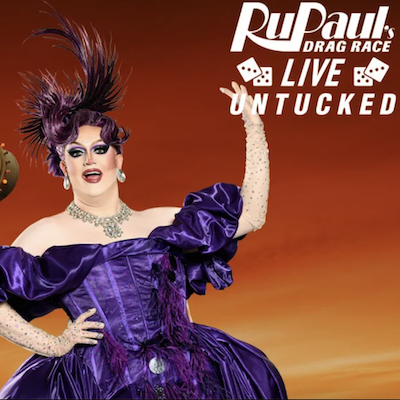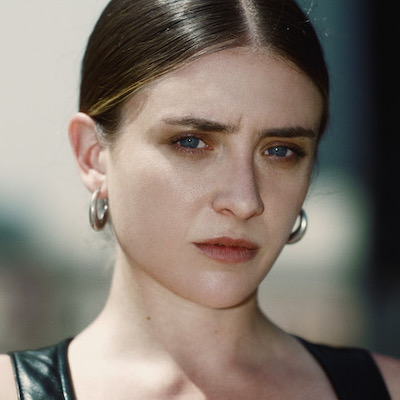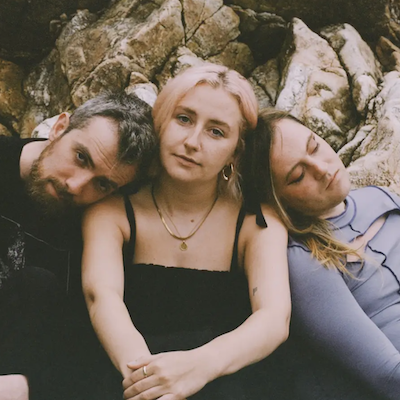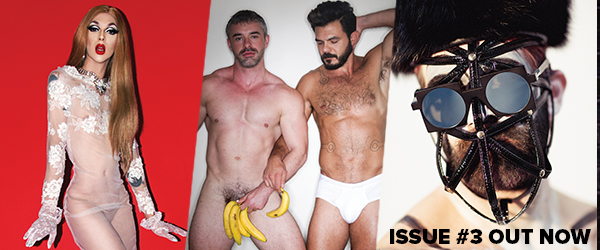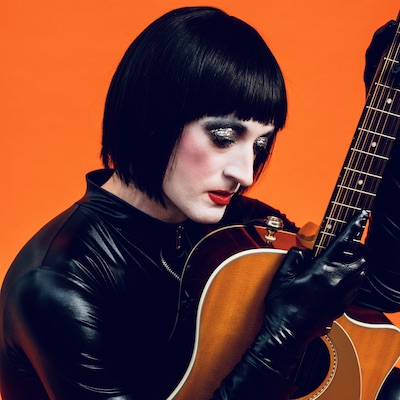
Since the pandemic Loverboy’s George Alley has been giving lectures to an audience of one (to later post to his Punk/DIY course at Temple University) and today’s lecture was about Glam Rock. So then hearing the new Art D’ecco record In Standard Definition released on April 23rd on Paper Bag Records, and reading about Art’s interest in referencing those powerful artists. He was excited to talk to a musician who wanted to explore those influences in a modern format.
So this album that’s about to be released on April 23rd, In Standard Definition, was recorded with Colin Stewart on a 50-year-old console, onto two-inch tape. I’m someone who used to record all the time on an 8-track and really miss that sort of analog experience. Tell me what it was like to work with Colin and to approach this album in this way?
Yeah, that’s cool that you recorded on 8-track, like a reel-to-reel thing, open reel-to-reel?
No, like a Tascam Porta-Studio.
Right! I used to have a BOSS digital one back, way back in the day. They were cutting-edge, pre-logic and consumer friendly. I remember the tiny little digital screen and you’re menu diving and it’s really hard to learn what compression and EQ does. That was in my late teens, early 20’s, and years later I found out that the first two Tame Impala albums were recorded on one of those things, and I was just like, “fuck,” that just shows you how much of a genius Kevin Parker is.
Those albums are huge sounding.
But yeah that BOSS was the start of me learning, I mean you got to cut your teeth somewhere. With my last album, my de facto debut, Trespasser, I worked with a long-time friend and sort of cohort named Jason Corbett, and he has a very specific way of recording. It’s a lot of what they call “in-the-box” recording, meaning in the computer. A lot of studios are working in-the-box or a hybrid. You’ll have analog gear that you run things through to saturate them and trick them out, but for the most part, there’s a lot of screens in studios. You’re listening with your eyes and using your other senses, of course, to kind of perform and vibe out if it sounds good or not yet. And Colin he’s such an old school analog guy. He recorded Destroyer and bands like Black Mountain, and his wife is in the New Pornographers, and those are all very analog tape kind of bands.
And it just so happened, he lives not too far from where I had moved to, and I thought, “Man, I’m going to ask him if he wants to co-produce the album,” and as soon as I saw his studio and I saw the tape machine there, I’m like, “Okay, we’re going to record this on that.” He was totally down, and I’m glad that if I was going to pop my tape cherry, if you will it would be with him. We spent like five straight weeks, almost daily together, just trashing up sounds and bringing in select players to perform parts, and then after they left just had fun mixing it and tweaking it, and it was a real labor of love.
Do you think it affected the final sound of the album?
As you can tell, I get really excited about the recording process, and all of that is to say that, did it make a super big difference? I don’t know, I think there’s parts that I hear like in ‘TV God’, the latest single, just before the second verse kicks in, you can actually hear the tape hiss on the track. “Most producers would put a noise gate on that and get rid of it.” And I’m like, “No, let’s fucking keep a little bit of hiss in there.” All my favorite albums, all of our favorite albums from that era have a little bit of hiss, some more than others. That’s kind of just maybe where I’m coming from in terms of In Standard Definition of being obsessed with things of old and analog, I was like, “I need to have those little moments for me in this record because that’s the whole point.”
As a listener, having those moments makes you reconnect to albums that are meaningful from the past. I read that you referenced, Here Comes the Warm Jets by Brian Eno for example, which I’m obsessed with that album, but…
Me too.
That time of Roxy Music and Velvet Underground, and Iggy, and Bowie and Nico, I teach a class on punk, and I talk about all of those artists as seminal because you wouldn’t have punk without any of those bands.
Indeed.
It’s an other-worldly, alien-like time for music. When listening to TV God, there is an element of that kind of power of old in that.
Oh, first of all, I’m gonna say thank you. That’s a very generous thing to say. I think I was reading, to be honest, Please Kill Me, (by Gillian McCain and Legs McNeil) That book, it’s one of the best books about rock ever. I’d put that one and the other one “Meet Me in the Bathroom” (by Lizzie Goodman). If you’re going to read two books about rock, like a 20-year period of rock history, those are the two books to read. And that, you’re totally right, the whole kind of the primordial soup, if you will, in the evolution of punk rock, it starts that protozoa is Bowie, and Iggy, and Lou Reed. And yeah, that whole New York art scene and how it manifested and sort of mutated and found its way through certain kind of carriers across to the UK and became influential on the punk thing. I just finished reading a book about the New Romantics era of UK, and I find that… And they were obsessed. Like the Blitz kids, and who would become like…
Boy George, Visage, Marilyn, OMD, Spandau Ballet.
Yeah, yeah, exactly. And they were throwing Bowie and Roxy Music nights where there’s just these free 20-year-old kids with no money just living free and dressing up and raiding their grandparents tickle trunks and putting on frilly pirate shirts like Adam and the Ants and stuff, and it was just like the androgyny and the whole wearing suits with make-up, and… I love that there’s so much Human League in my album, as much as say Roxy Music or Here come the Warm Jets they’re like this weird mutation and I love how music kind of mutates over the… And influences the next wave and how they kind of do a pastiche, or a cut and paste, and reframe it, and repackage it, so. Yeah, I kinda live in those two parallel eras like early 70s, and then obviously the early 80s kind of movement, it’s like they’re really book-ending by my influences from a generational standpoint.
What is it like for you to be releasing an album during a pandemic?
I’ll tell you what, it’s been done for over a year. The album. So I’ve already written, I’ve got most of the next album demoed and I’d like to record it In Standard Definition, I would have released this a year ago if I didn’t have a label holding me back for my best interest, obviously.
But it’s tough. I think that we’re going do as many visuals as we can live. With the music videos for this album, I want the instruments plugged in, I want it to look like we’re a band playing live because people kind of miss that, and we’re hopefully working on a couple of cool little things that we can roll out in these. Right now it seems like bands are releasing an album during COVID, they can’t tour it. They’re out of asset money, if you will, they can’t really make any more music videos, and then once the PR buzz is gone, it’s like, “Well, now what? What are we gonna do now? I guess, go back and record another album”, and the discourse dries up around your band, you don’t have the hot hand anymore, so timing is super tight and it’s tough.
We’ve been told that venues are starting in earnest looking at October, November, maybe September, depending on where you live. So yeah, it’ll be tough to keep people interested in an album that’s coming out in April, that’s for sure. Hopefully we can roll out some more videos and stuff like that and keep it on people’s minds, but yeah, it’s tough. It’s a little bit harder.
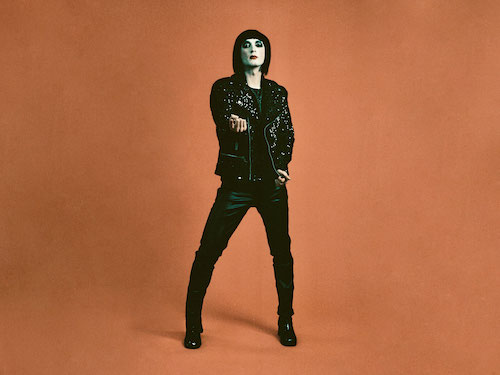
Maybe on the flip side is people are sitting with music more because they have more time to sort of sit and listen to music. Haha. So, we talked a little about escapism, how much of your presentation, how much of that sort of character is you? Do you create a second sort of stage persona for yourself?
That’s a fair question. I am Art. D’Ecco is kind of an embellishment on my birth last name, but most people, for the music industry, and bandmates I am Art d’Ecco to them. The stage look, the current sort of manifestation of that, that sort of droid-like, kind of alien skin, and the bob hair and stuff, that’s just sort of an embellishment of my dandy old self. I would like to say that I would keep this up for a while, but honestly, I like the idea of changing it up and being unpredictable, and I am very impulsive.
Because I don’t have to really answer to any proper bandmates, I can kind of pivot and zig and zag and do what I like. The first time I ever donned that look, I didn’t even tell the band that I was going be doing that. I just showed up to a gig, the second gig I ever played, dressed like that, and they were kind of just in shock.
And from that moment forward, I was like, you know, people responded to me different, I felt different, it was like putting on a superhero costume, and it made it like an event, like I’m going to the Art d’Ecco show and people… The amount of fan art I receive or people who kind of put on that makeup and come to a show, it’s fun, it’s like a little throwback to those scenes in London or in the early ’70s that I kind of… That I’m sonically influenced by. It’s also an aesthetic influence as well, so yeah, I don’t know what the next move is going be or what it will look like, maybe it’ll be something completely different, but yeah, for the next run of shows and for this album, that’s kind of how I look, I guess, androgyny and this little kinda glam art rock guy, you know.
There is something about these icons whether it is Siouxsie Sioux, or Brian Eno, or Boy George, they are making a statement about gender presentation, roles, and expectations on how you should have.
I agree, and I think people listen with their eyes when you dress. It’s like the environment, the aesthetic, the whole presentation, how we digest a performance, it’s all tied together. And if your aesthetic is like jeans and t-shirt and spilt beer, then that’s great too. Iggy Pop taking his shirt off and smearing peanut butter all over him and confronting biker gangs, that was part of the experience. You don’t go to an early Stooges show and expect like pitch perfect vocals and guitars exactly in time and in tune, you want the experience of danger. I thought, “What’s my experience when people come to an Art d’Ecco concert? Do I want to be another ham-fisted dude playing like guitar rock with synthesizers, or do I want to kind of throw in my own little spin on that?”
Especially now, even if you think of in terms of queer culture, for example, that there’s a lot of either drag or a hyper-masculine. A presentation of androgyny and that’s not necessarily about sexual identity, but more about escapism that’s something that hasn’t been done in quite a while. I mean the last big time I think that that was done was in like the early 2000s in New York, Electroclash bands like Fischerspooner and rock like Toliet Boys and the Yeah Yeah Yeah’s.
Totally and I love Karen O, I think Karen O, just to use that example. I remember hearing about Yeah Yeah Yeahs, it seemed like, so wait a minute, they don’t have a bass player, and you’re saying, “This is the hardest band you’ve ever seen, the most hardcore band you’ve ever seen?” Just talking to my friends, you know, when you’re working in a kitchen and you’re a kid and you’re just arguing about stupid shit, and then putting on that Fever to Tell album and it’s like, spazzy art punk and it blew… It ripped my head off,. But then there are tender moments, and so Karen O is one of the most badass live performers from a total anarchy perspective, but also has this ability to break your heart with these tender ballads, like “Maps”.
It is that dynamic range also taught me that when we say, “Oh man, that’s so punk.” We usually mean like anarchic and chaotic, but really punk to me, if I can kind of spin the definition wheel, I would say it’s about going against the grain, it’s like, when everybody’s telling you to do this and you say, “No, this is how I want my art and my music to be digested.” And I think that more and more musicians need to think like punks and not about what the Spotify editors are going to like. I would tell my 20-year-old self that lesson because it took me years to learn it.
In Standard Definition must have been different for you, knowing these songs were going to be played live. It was after you recorded your album Trespasser that you got a record deal, right?
Yeah. Well, you have your whole life to make your first album. I did an album before that called Day Fevers and I self-released it in 2016, and then it got subsequently pulled by the label when I signed with Paper Bag Records, but there was about two or three years of me label-less, I was so heartbroken that I didn’t get a deal and not because I needed all the trappings of being on a label, I just wanted my music to be heard. When you have an infrastructure there, it just becomes exponentially easier and you can focus on doing cool shit like touring and buying make-up for your live show. I knew that with Trespasser, I was like, fuck it, I’m going to lock myself on this island and not emerge until I’ve put together my best record, but as soon as that was done, I started continuing to write and the In Standard Definition songs. That batch of songs would draw from some common themes: these songs are about entertainment, they were about entertainers or they’re stories that entertainers tell on TV, like actors, or they’re like behind the scenes kind of commentary on show business or they’re how people like me have a relationship with entertainment, being an entertainer.
It just became so obvious and I told the label very early on, I was like, “I’m recording an album, just so you know, get ready because I want to fire one out right away,” and they were stoked and then I got the record delivered in late 2019, and here we are in 2021 talking about it a lifetime later. It is great having the infrastructure already there. I didn’t have to worry about chasing a deal down and trying to get it heard, I know this album’s going to get heard.
The title of this magazine, Loverboy, is named after the Mariah Carey song. What is your favourite Mariah Carey song or moment?
I mean we just had Christmas. I’m so sick of Christmas movies, but I will say that every year, at that time of the year when it’s just ubiquitous, ‘All I Want for Christmas is You’, is that what it’s called? The Mariah Carey Christmas song? It never fails to put a smile on my face, now that we’re in January and I’ve heard it 10,000 times, I’m kind of sick of it, and I could use another 10 months of not hearing it, but if I had to pick an original, it’d be that one, but also, I do love her version or her take on ‘Without You’. For years, I thought the original was by Harry Nielsen, it’s not he is doing a cover. That song is just so goddamn good.
Yeah, that is a classic Christmas song. Well, thank you Art.
Thank you for chatting with me, George. I hope I wasn’t too loquacious. And good luck with the rest of the punk tutorials for the kids. You never know, there’s probably some young George or young Art d’Ecco in that group who’s going to take everything you taught him or her, or them and write the next big punk rock album.
In Standard Definition is out 23rd April.
Instagram / Facebook / Bandcamp



